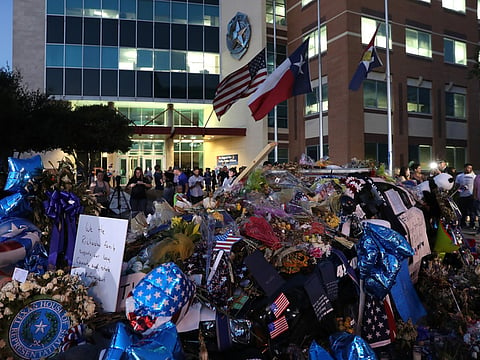America’s Achilles’ heel
Calls for unity fall on deaf ears as race tensions increase

The America that gave the world Thomas Jefferson and Abraham Lincoln is no more. Regrettably, and even if Katherine Lee Bates’ patriotic America the Beautiful song beseeched the Creator to “crown thy good with brotherhood from sea to shining sea”, racial unification is, for all practical purposes, an ephemeral goal. What is truly odd is that Americans seem determined to waste another generation, and while voters entrusted their country to a black president, a portion of society loathed racial harmony. For his part, United States President Barack Obama proved that brotherhood was the last thing on his mind, notwithstanding contrite speeches that sounded right but lacked substance.
Few doubt that race relations are getting worse in America, with a small segment of whites confused about the very meaning of life, oblivious to the basic notion that everyone matters. It seldom occurs to such sycophants that when organisations such as Black Lives Matter emerge on the scene, something must be quite wrong. Similarly, challenged minions ignore that violence begets violence, especially when the brutality is practiced by law enforcement officers, who are entrusted with maintaining and enhancing social peace.
Ironically, some Americans have yet to enjoy the same opportunities in the land of the free and the home of the brave, ranging from education to employment to housing, even if significant progress were recorded for a small segment of minority populations.
Where the system failed was in law enforcement, which disproportionately incarcerated black Americans with so much ease that one wondered whether business purposes influenced routine conduct across the country. Crime paid and not just for the criminal as the entire justice system — police officers, prosecutors, defence attorneys, judges and a motley crew that ensured bureaucratic efficiency — earned their livings from it. Without denying that black American criminals can be as dangerous as their white counterparts, demographic and socio-economic factors exacerbate living conditions, even if justice pretends to be blind.
In fact, and according to the US Department of Justice, African-Americans made up 37 per cent of prison inmates among the 2.2 million incarcerated males in 2014, when the percentage of black people is about 12 of the American population. Even worse, current trends confirm that 1 in 3 black males will go to prison in the US at some point in their life, compared to 1 in 17 for white males (itself a shocking statistic).
Poverty and alleged mental-illness shortcomings probably affected these figures, but police brutality was an established fact too and there is no denying it. How do we know this? We can see it on YouTube and there is plenty of video footage that show misconduct across the country. Confrontations have now become so frequent that we need to redefine hate crimes as confused policemen, sheriffs and, yes, judges, “practice” their crafts with relative impunity. At some point, even former soldiers will crack, as seems to have been the case in Dallas last week.
Amid the chaos, certain images will now haunt us, and have a far greater impact than Obama’s pleas for mutual respect. The photo that emerged from Baton Rouge, Louisiana, which showed nurse Iesha L. Evans standing still in her long dress in the face of two Louisiana state troopers in riot gear, is a stark reminder of what is at stake. The unarmed caregiver, who probably treated wounded police officers, was promptly arrested. Yet, like the 1989 grocery-bag carrying Chinese dissident who stood still in front of a tank in Beijing’s Tiananmen Square, it was she who won because she was unarmed, silent and non-violent.
To say therefore that decades of racism have badly hurt black America would indeed be an understatement. Simply stated, Americans tolerated poverty for far too long, though the opportunities were there to encourage the creation of wealth by and for everyone. Whether a black college graduate — who sees a median return of approximately $4,900 (Dh18,022) after completing a four-year degree will match the white’s $56,000 — can join that brotherhood will, to put it bluntly, surely determine the country’s fate.
The Washington Post reported in 2015 that “black household wealth is just over the median wealth of an adult” in the Occupied Palestinian Territories, which the elite paper noted was embarrassing. The daily provided 2015 gross domestic product per capita for blacks ($23,000) compared to the US national average of $53,000, which was humiliating. It even reported that a median black household had just 6 per cent of the total wealth ($7,113) that the median white household enjoyed ($111,146).
Of course, America is much better than these figures highlight, and there is genuine freedom — though not for everyone. Still, the time was long overdue to end blatant racisms, including the reverse variety, though it behoves us to remember and finally apply what Martin Luther King Jr said in 1966: “[The] law cannot make a man love me, but it can restrain him from lynching me and I think that’s pretty important also,” even if lynchings have now been replaced with shootings.
Dr Joseph A. Kechichian is the author of the just-published From Alliance to Union: Challenges Facing Gulf Cooperation Council States in the Twenty-First Century (Sussex: 2016).


